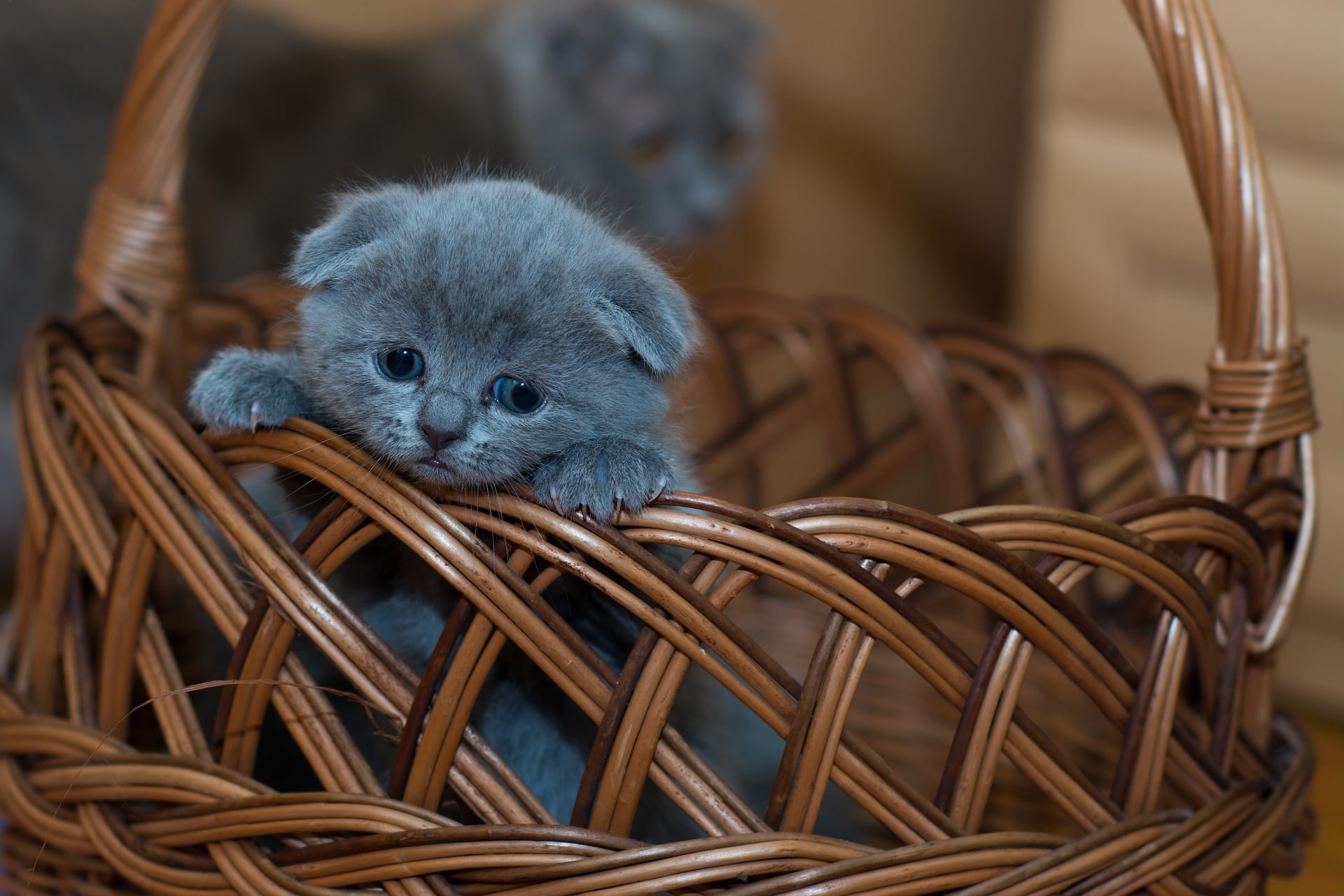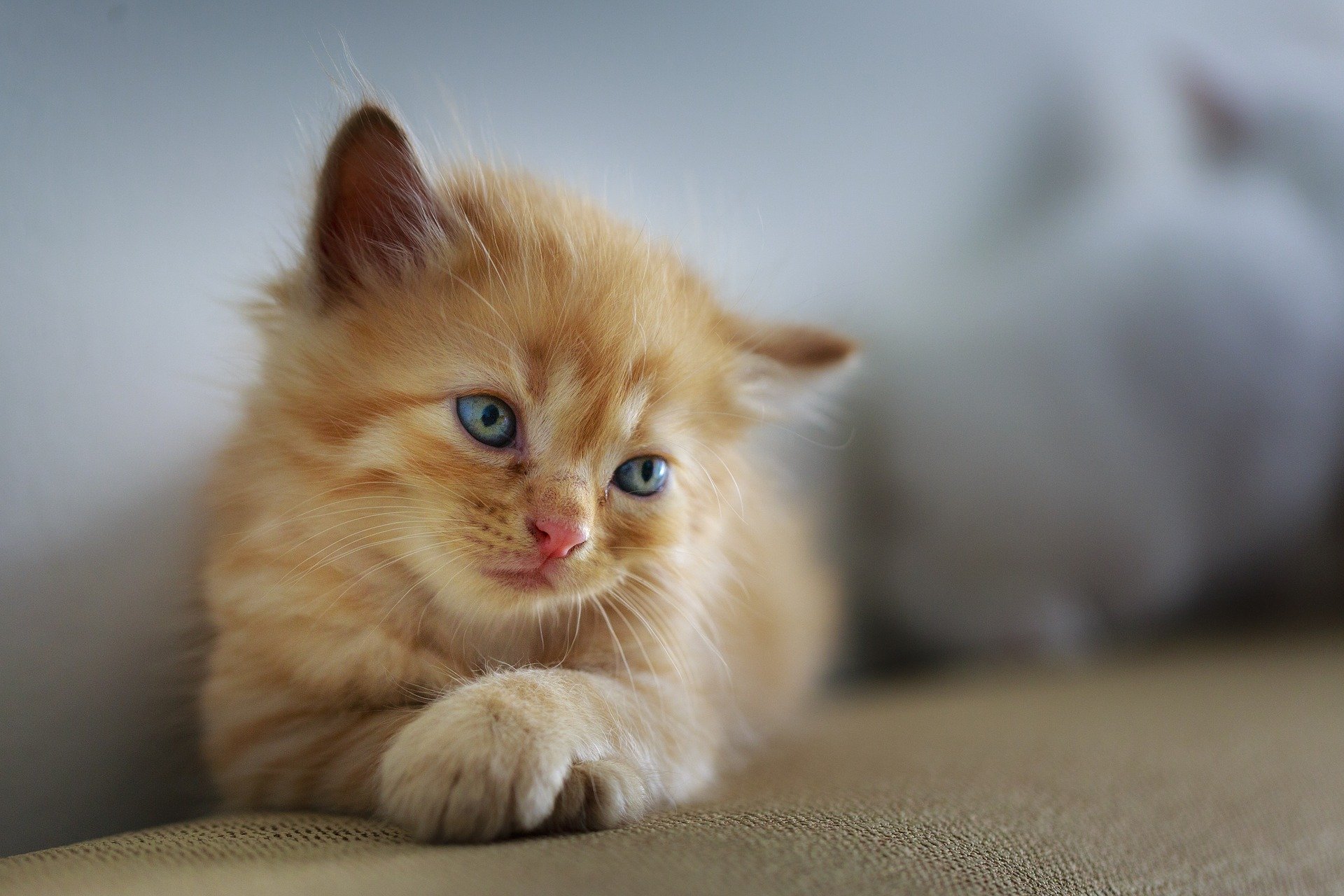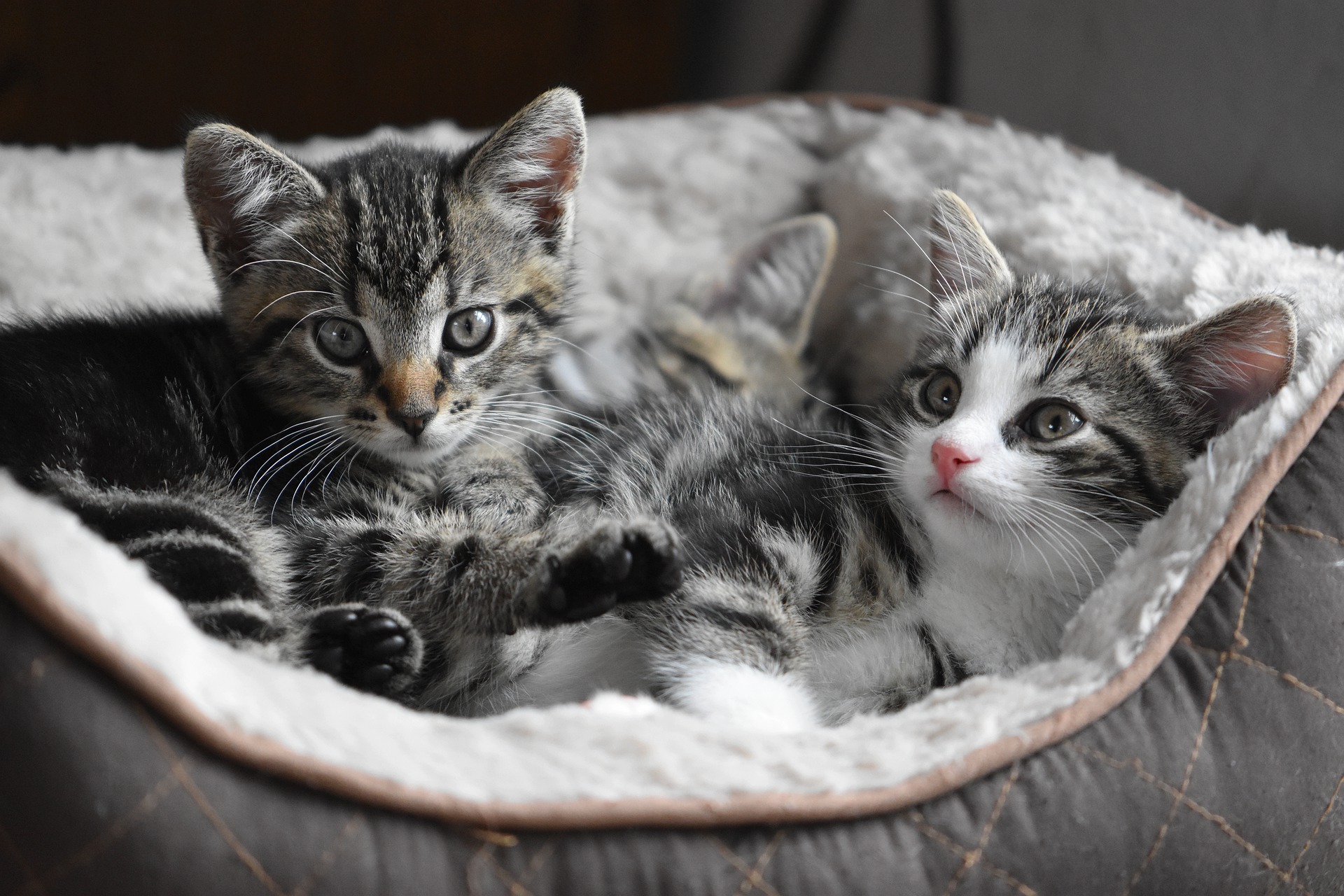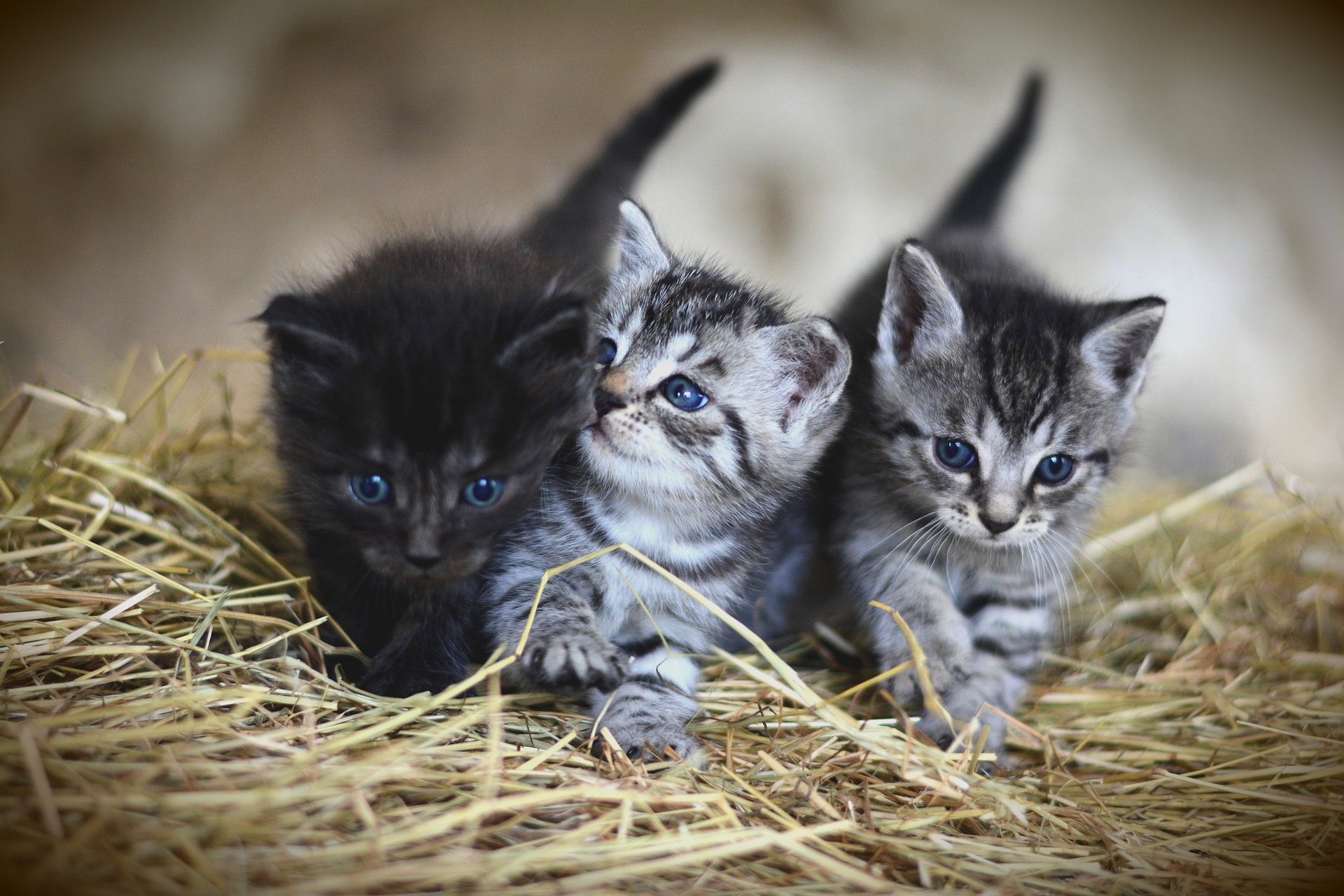
The cat's growth rate is very fast: in just twelve months, it goes from weighing about 100 grams to weighing between 2 and 3kg. He begins his life completely depending on the mother, since he is born deaf, with his eyes closed and without being able to regulate his body temperature. But time plays in your favor, well with three to four weeks you will be ready to start eating other types of food.
You will still need to drink milk for at least six weeks (ideally up to two months), but your teeth will already be strong enough to be able to chew soft food. But what can you give it? This time I will explain what should a small kitten eat from weaning.
Once the kitten is about three weeks old, it will begin to follow the mother every time she goes to the feeder to satisfy her hunger. We can take advantage of this situation by giving the kitten its own feeder with special food for kittens. In this way, he will be the one to learn where to go every time his stomach complains 🙂. But of course, at this age it is still too early to give him dry feed because his milk teeth are just beginning to come out, so, to do?
The ideal would be to give natural meat, but very crushed (as if it were porridge) and always very soaked with water or warm milk for kittens (he will not eat it if it is cold). But if you don't have much time, you can give cans for kittens that they do not have cereals or by-products because they do not need them and in fact they can give you allergies; We must also soak the wet feed with milk or warm water.
How many times should you eat? It will depend on the times that he is hungry, so it will be the kitten himself who decides if he wants to suckle or eat well. Of course, once he is one month old, the most likely is that the mother will no longer let him suckle, so we will have to give him his kitten food soaked, of course, with specific milk for them.
After two months, your teeth will be strong enough to chew without problems. At that time we can give you dry feed for cats of your age until you are one year old. If we see that it costs a little, we will add a little water to soften it.
8 foods to feed your kitten under one year old

Cats and kittens have a reputation for being delicate eaters and unfortunately, that reputation is well deserved ... We want to expand on what I said above so that you know a little better what foods you can give, one by one, taking into account some important considerations. If a kitten grows up eating just one food, it will get used to that food and changing it later will be difficult.
However, if a kitten is presented with a variety of foods during his first year of life, even if he has his favorite food, he will eat other foods that are beneficial to him. Here are some foods to offer your kitten during her first year. Some of these are good foods, while others may be special treats but not to eat every day.
The primary food for kittens
Your kitten should be eating a good quality kitten food or food labeled for all stages of feline life. Even when you introduce him to other foods, this should be his main food, as too many changes can cause digestive upsets. Feel free to change the flavors of the foods, but stay within the same brand to maintain some consistency.
Canned cat food
The variety of ingredients available in canned cat food makes it a great way to introduce your kitty to different foods and flavors. You can try shrimp, fish, various types of birds, and more. Also, some have other ingredients (like vegetables), while others are just meats. You can add a tablespoon to your primary diet or offer it as a gift. Many cat owners use canned food as training treats when teaching a cat.
Scrambled eggs
When you make yourself scrambled eggs on a Sunday morning, complete with melted cheese, give your kitty a scoop. It's good nutrition and your kitty will love it. However, Give it to your kitten before adding salt and pepper or sauce.
Fresh and salt water fish
Your kitty will be happy if you share your cooked fish with him. It can be a bit of trout, catfish, salmon, or tuna, although any cooked fish is actually fine. Again, giving him a little bit (a teaspoon) is enough, even if he's begging for more..
Cooked meats
Feel free to offer your kitten pieces of cooked beef, chicken, turkey, lamb, venison, or other lean meats. Avoid fatty meats, fried fatty meats or those that contain salts, nitrates or preservatives. Don't give your kitten hot dogs, bacon, or sausages, as these will upset her digestive system; potentially causing diarrhea. When you give him some meat, cut it into cubes or chop them into small pieces. Some kittens get greedy and can choke on large pieces.
Green salads
Although cats are naturally carnivores, which means they are meat eaters, adding some vegetables to your kitty's diet will add fiber and some vitamins and minerals. Some finely chopped broccoli flowers or lettuce or other salad greens can be offered. A pinch at a time is enough.
Pumpkin
If you're cooking pumpkin for your family, save some for your kitty. Grate a small piece of pumpkin and place it on a paper towel. Cover it with a damp paper towel. Put it in the microwave for just a few seconds; just until cooked. Wait until it cools down and then offer a pinch to your kitty. Put what you have left over in the fridge to keep it well in case you want to give it to him another day.
Cat grass
Pet stores, and sometimes even grocery stores, will carry cat grass growing or cat grass kits for you to grow at home. The grass is usually wheat or oat grass, although it is sometimes a mixture of herbs. Grasses can provide fiber, vitamins, and minerals for your kitty, but mostly they offer her something new to experiment with. In fact, many kittens have more fun pulling grass than eating it.
When offering your kitten any of these different foods, keep the 10% rule in mind. Anything you add to your kitty's daily diet shouldn't represent more than 10% of her total daily calories. More than 10% could upset the nutritional balance of your food. Plus, offer one new item at a time. Give him the opportunity to taste and know that food before offering him something else. With those thoughts in mind, have fun. Enjoy your kitty's food explorations!
Remember: human food is for humans

Although you can give your kitten certain foods that you also eat, not everything goes. There are some foods that are for humans and that you can't even give a kitten because you could endanger its health.
Despite all the cute pictures of kittens drinking milk from a plate, kittens should only drink their mother's milk. Some kittens (and adult cats) are lactose intolerant and become ill when fed cow's milk and other dairy products. It's also important to develop good habits early and keep your kitty eating only what it should.
Although most people's food won't hurt them, kittens will soon learn to prefer it to their normal food. You will never eat in peace again if you get used to feeding him ... Human food can also irritate your kitten's little belly and cause diarrhea. Therefore, it is better that the food you eat is for you and not for your cat.
If you have doubts about which human foods you can give your kitten and which not, remember that you can always go to your veterinarian to ask what are the most recommended foods for your little feline, taking into account their own characteristics. Remember, if you want your cat to live a long time in good health, you will have to think about how to feed him correctly since he begins to take solids. His health will depend on the good diet that you provide him since he is very young! Because in addition to dry feed, there are more options so that you do not lack vitamins of any kind.
So your kitten will grow up healthy and carefree 🙂.
